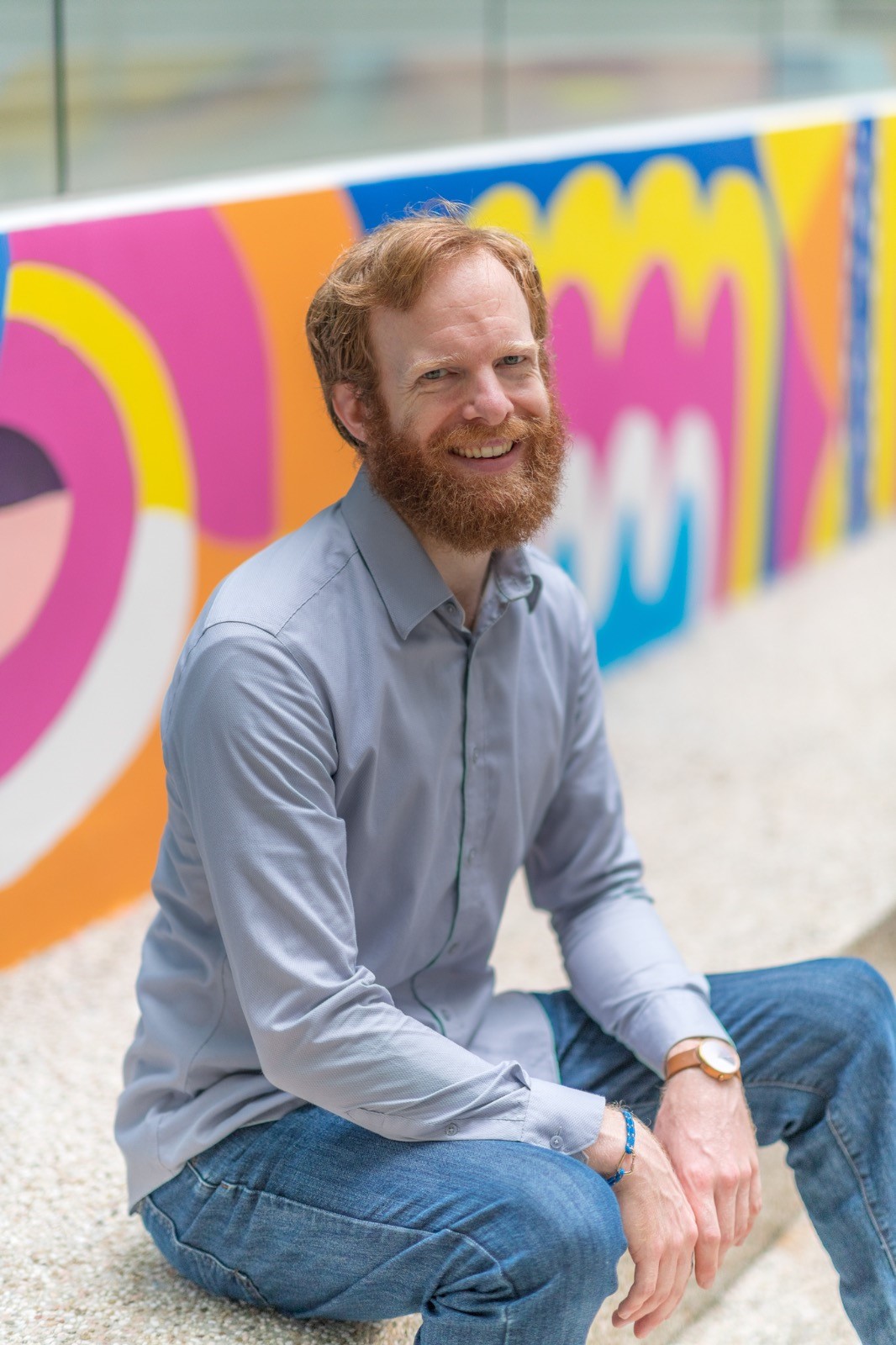Teaching at the Frontier

“The first course of its kind in the world.” A module by Asst Prof Benjamin Turner takes undergraduates from Nanyang Technological University to the forefront of communication research. “To bring it all together for this comprehensive look at the near-future of the communication research field, I don’t think anything else exists,” said Asst Prof Turner of the CS4039 Frontiers In Communication Science module.
Introduced in January 2019, the course aims to teach students new concepts as they are being researched, said Asst Prof Turner. “Imagine you’re at a market research agency five, or ten years down the road. What will your bosses be asking you to do? Is it pencil-and-paper surveys or calling people on the phone? Or do you think it’s going to be neuroimaging stuff?”
Asst Prof Turner first designed the course at a meeting at the International Communication Association (ICA), an academic association for communication scholars worldwide. “I realised that at the Wee Kim Wee School, and worldwide, there was no course that could give communication students the terminology that they would need to come into a meeting or talk at ICA and understand what’s going on,” he said.
Over 13 weeks, students undergo five “mini-modules”, exploring psychophysiology, genetics and evolution, agent-based modelling, machine learning and statistics. Students are first introduced to the basic theories behind each field and how communication scholars have approached the topics. Students then give presentations on relevant papers published and evaluate the research conducted.
“By the end of the semester, students will have an understanding of the basics of each of the five topics, and how they relate to the cutting edge of research within the field of communication,” wrote Asst Prof Turner in the course syllabus.
With a focused class size of about 20 students, the course has proven popular among students from the Psychology and Media Analytics double major programme, as well as with exchange students from around the world.
“There are even exchange students who are in a master’s programme back in their home university,” said Asst Prof Turner. “So these are not your typical students.”While some of the approaches studied may still be in their early stages, staying abreast of the latest research methods “can make you very attractive to employers,” he said. One assignment sees students working on industry pitches individually. Designed to mimic real-world tasks in a communication-related job, students are challenged to apply research methods to market scenarios.
“(This is the) sort of pitch an employee might have to put together on short notice for an employer or client,” said Asst Prof Turner.“Traditional methods will never be replaced but knowing a bit about what’s around the corner will give you a leg up!”


.tmb-listing.jpg?Culture=en&sfvrsn=749a58e_1)



.tmb-listing.jpg?Culture=en&sfvrsn=b956bfae_1)
